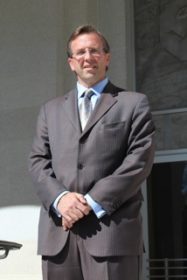
https://soundcloud.com/capimpactca/aca-25
Back in April, when lawmakers announced that the Legislature would be returning to session, the Assembly and Senate announced that they would be returning on different dates. As Hannah Wiley reported in the Sacramento Bee, based on the legal advice they received from their counsel, the Senate passed an emergency resolution allowing Senators to participate and vote remotely. The Assembly, based on the exact same legal advice from the same attorneys, determined remote participation and voting would be unconstitutional. Enter Assembly Constitutional Amendment 25.
If it passes, ACA 25 would add a section to California’s Constitution allowing legislators to participate and vote remotely. ACA 25 received the two-thirds majority vote it needed to pass the Assembly yesterday. It now needs at least 27 votes in the Senate. While it will not go to the Governor to be signed or vetoed should it pass both houses, it will be placed on the November statewide ballot where it will need to approved by a simple majority of voters. Also, because there is a looming June 25 deadline for legislative measures to qualify for the November ballot, there is a tight window for ACA 25 to pass the Legislature.
So, assuming it passes and is approved by voters how would it work? Remote attendance and voting could only take place during a state or federally declared state of emergency. That remote attendance and voting is the same as if legislators were physically present in the Capitol. It also defines state emergency along the same lines as it is defined in the California Emergency Services Act that gives the Governor many executive powers during a state of emergency.
There are some other interesting provisions in ACA 25 as well. One provides that if 20% or more of the members of the Assembly or Senate cannot attend a legislative proceeding during a state of emergency, then a quorum to conduct official business may be established by a majority of the legislators who are able to attend the proceeding. Another is that it would allow legislators to adopt by statute a means for temporarily filling vacancies in the Legislature.
